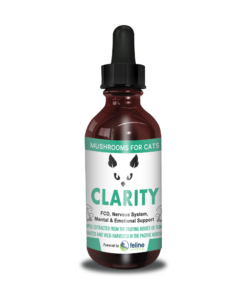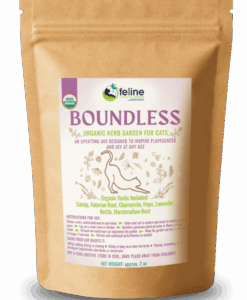Most cats love anything fish flavored – but could too much fish be bad for them? While we don’t think feeding only one protein is good for cats, fish has some iffy fishy facts that we’d like to flesh out here.
Did you know that fish is often a main ingredient in some commercial chicken flavored cat foods? Or beef? Even some lamb and rabbit recipes? For our feline friends that have a food sensitivity to fish, this is certainly a bad surprise.
Because fish (and fish products) tend to cost less than many other proteins, it’s attractive to pet food manufacturers. But why could that be bad? Especially since its strong scent and flavor is so attractive (and often addictive) to most cats?
Fishy Cat Food Facts
-
- Contamination. The big culprits are mercury, PBCs (industrial chemicals), and ethoxyquin. Ethoxyquin is a food preservative often used on fish meal. It’s also a pesticide – and a known cancer causing agent. Pet food companies don’t usually add this to the food themselves anymore (because of many consumer complaints in the 90s) – but this contaminant remains common in fish. The dangers of mercury and PBCs are more well know – both of which bioaccumulate in the body causing various cancers and organ damage.
- Hyperthyroidism. Many studies have linked hyperthyroidism in cats to many things. Flame retardants (in our furniture) and PCBs included. But a research study in 2000 also found cats that preferred fish-flavored food ‘have a significantly increased risk of hyperthyroidism.’
- Thiamine Deficiency. Cats require thiamine (vitamin B1) for healthy nerve, muscle and brain function – and a deficiency can be fatal. Fish contain the enzyme thiaminase – which destroys thiamine – making fish flavored foods naturally deficient in this vitamin.
As mentioned above, we are not fans of feeding cats only one protein source long-term. No matter if it has fur, feathers or fins. But fish-flavored foods certainly cause more concern than many other proteins – and as such we limit our cat’s intake. We also take a close look at the sourcing of all proteins we feed – especially fish. We know tuna is a cat favorite – and sourcing can play a large role in its level of contamination – but we encourage it only be used as a rare and high-value treat.
If your cat is a fish addict, try treating with much smaller (and therefore less contaminated) fish – like sardines (in water, not oil) or minnows.




Recent Comments